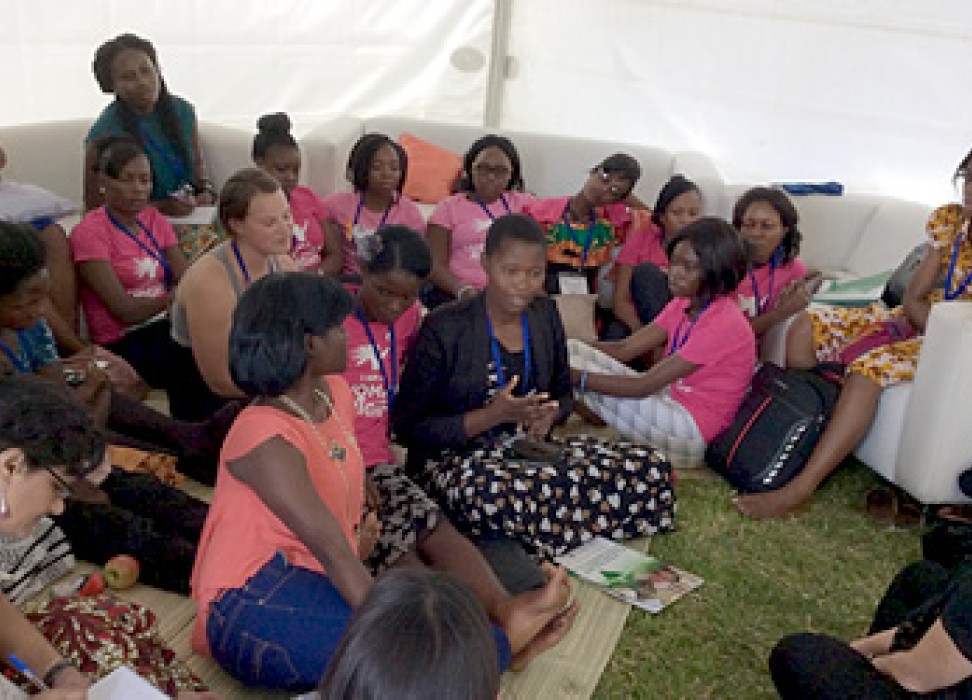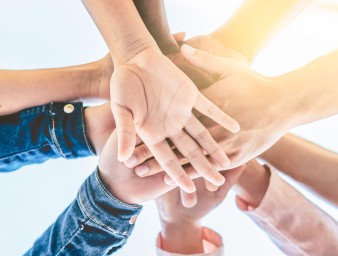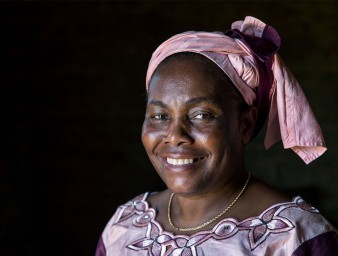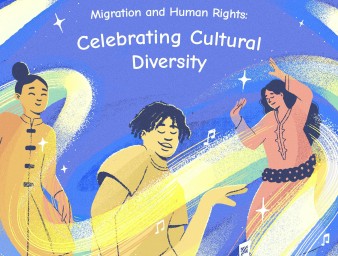Ending child marriage: affected girls speak for themselves
04 December 2015

Hope was 14 when she decided to get married. All her friends were doing it, and she reasoned she should do the same. Her parents, however, did not agree and told her not to do it.
She didn’t listen. Against her parent’s wishes, she became the fifth wife of a much older man. Soon she became pregnant and soon after that, her husband began to beat and abuse her.Hope escaped and tried to go back home to her parents. But she had disobeyed them and was pregnant, so they refused to take her back.
Hope eventually found her way to a charity run by the World Young Women’s Christian Association (YWCA) who gave her and her five-month old daughter shelter.
Hope was one of over 40 formerly married girls who met with UN Special Rapporteurs on violence against women and on contemporary forms of slavery on the margins of the First African Girl’s Summit on Ending Child Marriage in Africa. The summit, which took place in Zambia, was a chance to recognize efforts made by African governments and other stakeholders who have been actively working to end child marriage as well as work toward and strengthening laws against the act.
The meeting of Special Rapporteur on violence against women Dubravka šimonović and the Special Rapporteur on contemporary forms of slavery Urmila Bhoola with the girls was an opportunity for the rapporteurs to listen to the girls’ stories and for the girls to ask questions about the UN human Rights mechanisms and how they apply to them.
"The summit provided me with an opportunity to meet with extraordinary young women who fled servile marriages and other forms of slavery, and who have overcome the discrimination and stigma attached to this through education,” said Bhoola. “This illustrates the importance of continuing to enforce international human rights law, as well as advocacy, access to justice and public awareness-raising on how child and forced marriage destroys the lives and dignity of girls.”
The girls came from Mozambique, Zambia, Angola, Ethiopia, the Democratic Republic of Congo (DRC) and Malawi. They said they came to the summit in the hopes that their stories of early marriage would help accelerate change.
“Child marriage started before me and it will end with me,” said one of the participants.
The girls asked the special rapporteurs to provide mentorship programmes, as some girls, like Hope, get married because their friends are doing it. They lack the positive images to wait. They also pointed to the need to have UN documents translated into local and accessible languages and to involve girls, as well as traditional leaders and parents in all programmes to change attitudes toward early marriage.
"The importance of this 1st African summit is the political will of African leaders to act now and to provide a better future for its girls! It is crucial to focus on States responsibility to prevent by all means the girl child forced marriage as a gender-based violence that includes sexual violence and constitutes a girl's human rights violation," said šimonović.
This story is published as part of the 16 Days of Activism against Gender-Based Violence, which runs every year from 25 November (the International Day for the Elimination of Violence against Women) to 10 December (Human Rights Day). The international campaign calls for the elimination of violence against women and invites everyone to take action.
4 December 2015



